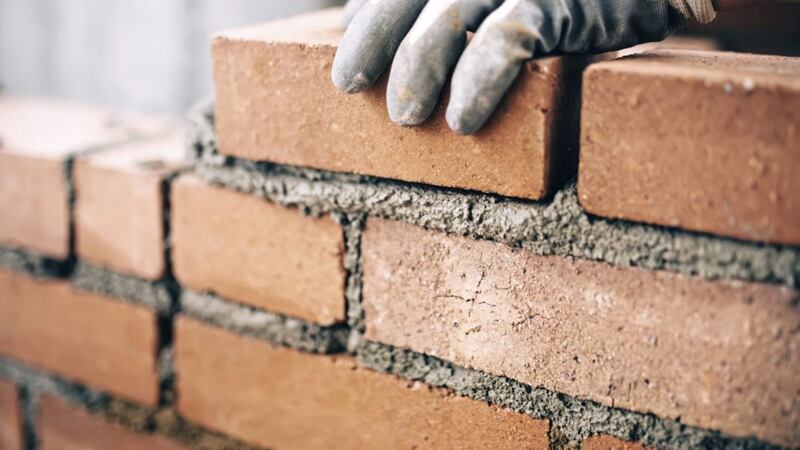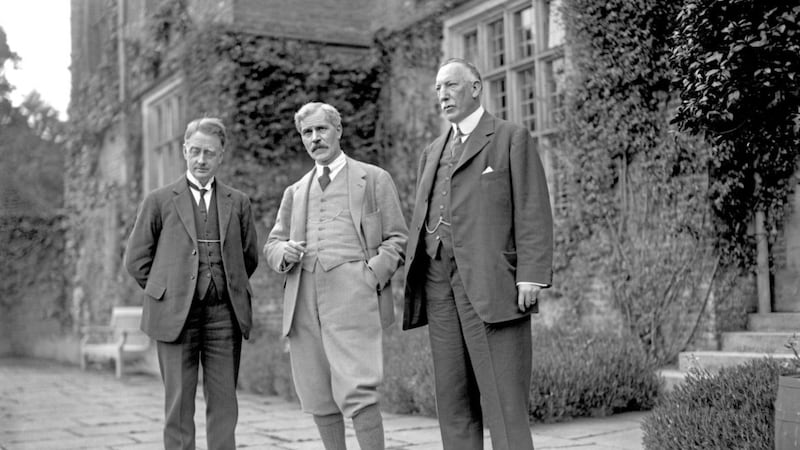MULTI-PARTY talks have begun, with the agreed goal of restarting the political institutions on a sustainable footing - the Assembly, Executive, North South Ministerial Council, and British-Irish Council. That's a positive step.
It means that the collective focus of politics is now increasingly shifting back onto a consensus position of 'when' and 'how' the political institutions will be sustainably restored; not on 'will we, or won't we?'.
Good grace and manners, matched by genuine generosity and real dignity, should be core to how we all - particularly public leaders - interact throughout the public square in the time ahead, including within restored institutions.
However, political institutions aren't just spaces for good practice in repairing fractured relationships. They must also be credible places of good government in delivering for people.
We're seven months away from 2020, hurtling our way through the 21st century. Alongside local issues, a broader global perspective is also needed - one that understands the important and influential role of state-level political institutions in a changing, chaotic context.
In the past few weeks, both the British and Irish parliaments have declared climate change as an emergency.
These kind of reference points may, at first, seem largely symbolic, but they are critical in shifting the tide of social argument.
These declarations result largely from participatory democratic involvement by arrays of ordinary citizens.
Notwithstanding the climate change emergency, the next decade will see the world changing more rapidly than the previous 50 years.
By 2030, some cities and corporations will be more powerful than states, but with much less regulatory accountability.
Populations will be shifting towards cities. Agriculture will be transformed. Security issues will become less predictable and more disparate, thereby requiring new approaches.
People will live longer and 50 per cent of adults could experience some type of cancer during their lifetimes.
Meanwhile, social epidemics like suicide and addiction will be harder to address in an environment where social contact is increasingly reduced to virtual online 'relationships'.
In economic terms, the power bases will shift to the southern hemisphere, especially India and China, focusing on artificial intelligence and automated technologies.
The impacts for Ireland will be significant, especially in relation to traditional trades.
For example, machines are today being designed that will lay bricks and mortar by thousands of units daily - 10 times the manual rate. What will happen to the non-unionised, self-employed brickies, plasterers or labourers? And their families? And their salaries?
Are we preparing, in advance, for some of the likely social inequalities that these changes might create? Who should design our local economy - with public involvement and accountability - to address such profound impacts?
We are, to some degree, unique among these islands by virtue of our history. Democracy is far from perfect.
But our unique characteristics are surely better understood by local democratically elected representatives.
There is also a strong argument for increased, organised participation of citizens and communities through meaningful and effective forums, like citizens' assemblies.
There's consistent and appropriate focus in this society on rights and responsibilities.
But consider this: artificial intelligence is already being trialled to assist verdicts and sentencing in US courts - computers judging cases.
Where do such developments leave our (non-functioning) institutions, given the foreseeable challenges around rights that could potentially affect our criminal justice system?
One purpose of state-level political institutions anywhere in the world should be to intensely interface with these predictable global changes and to begin shaping outcomes for localised realities.
Politics will always move much slower than wider global progress. But without state-level institutions, even less can be done.
It's worse in unforeseeable circumstances. Ten years ago, Brexit wasn't even a word here, never mind predictable.
The next decade will bring many similar global storms to this island, especially with the growth of unethical extremist tendencies.
Democratic institutions - with their many imperfections - need time and space to build and breathe, and opportunities to be reviewed and revitalised.
While we're soon approaching the centenary of the legal/political establishment of the state of Northern Ireland, the 2021 Census will, in subsequent years, reveal an entirely changed society from that of 100 years ago.
This will present new realities and challenges for all sectors in the north, not just some.
Would an Assembly, Executive, North South Ministerial Council and British-Irish Council not have potentially positive roles to play?
Across the world, citizens need fair and functioning political institutions. We are no different.
We also need better relationships being built across this society, with real generosity and heartfelt dignity at all leadership levels - regardless of our many past individual and collective mistakes.
There's hard work and heavy lifting to be done over the next decade.








